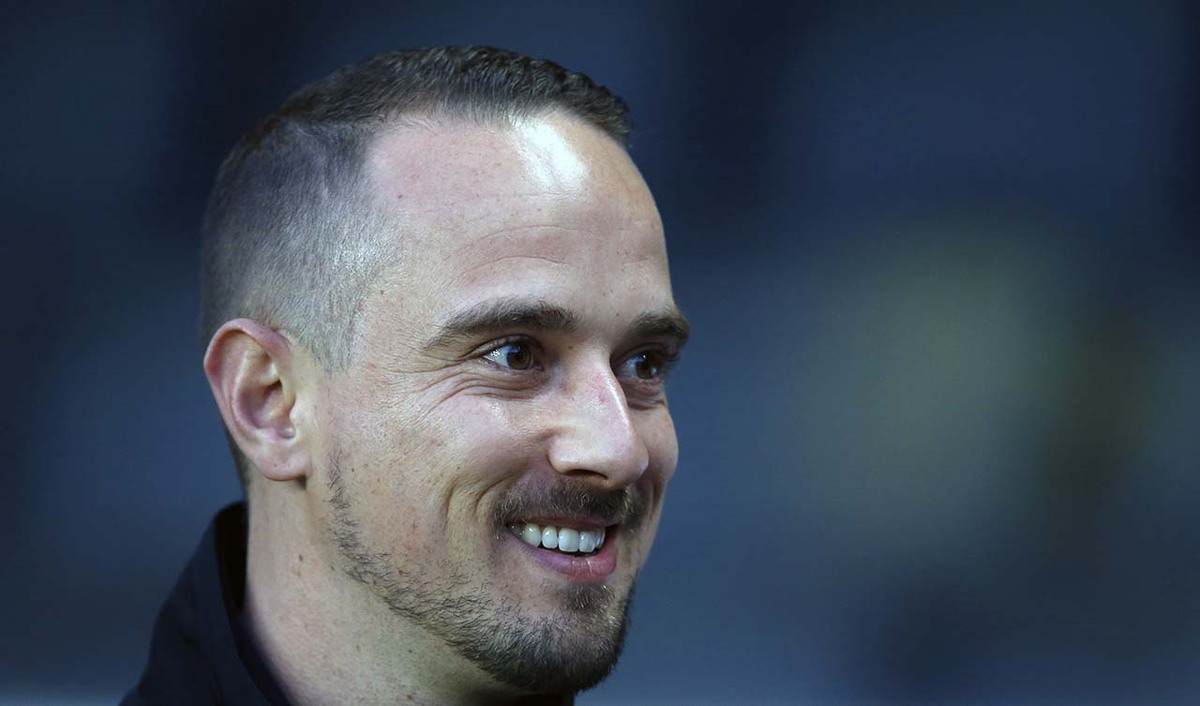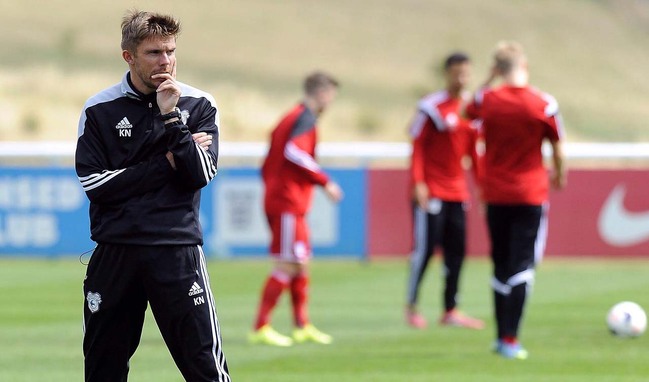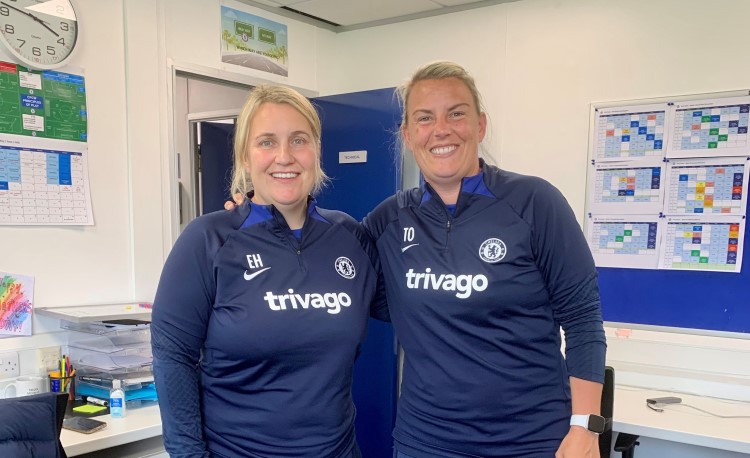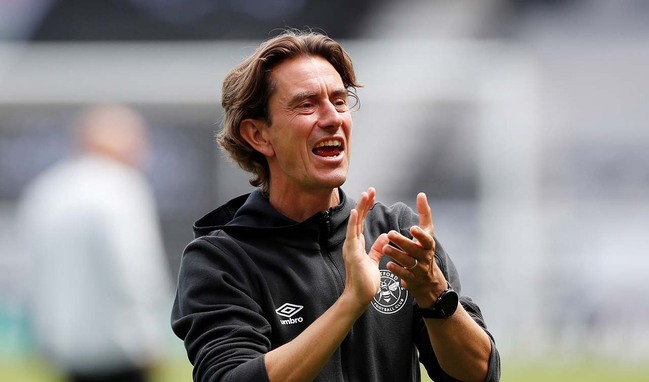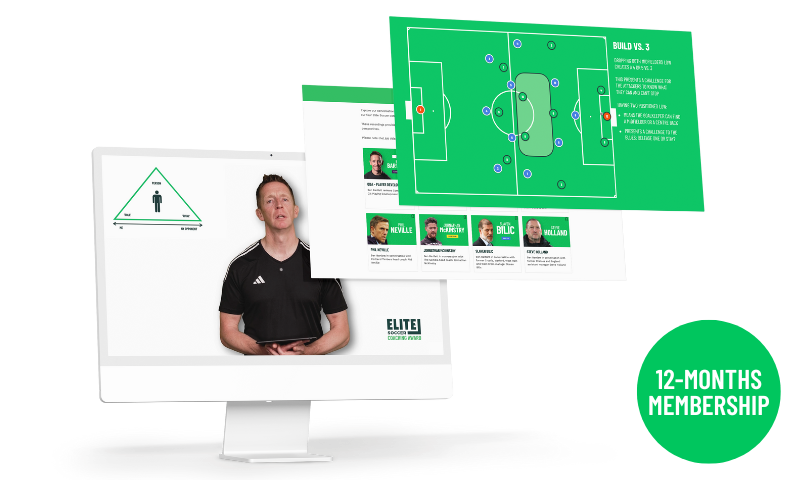
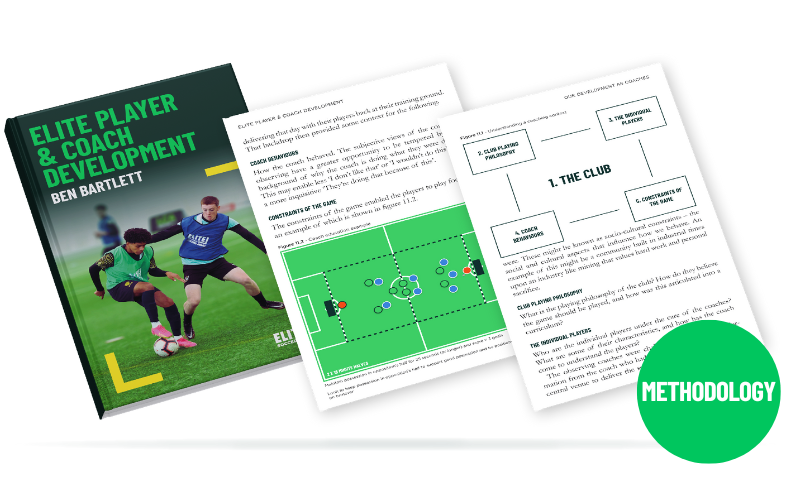
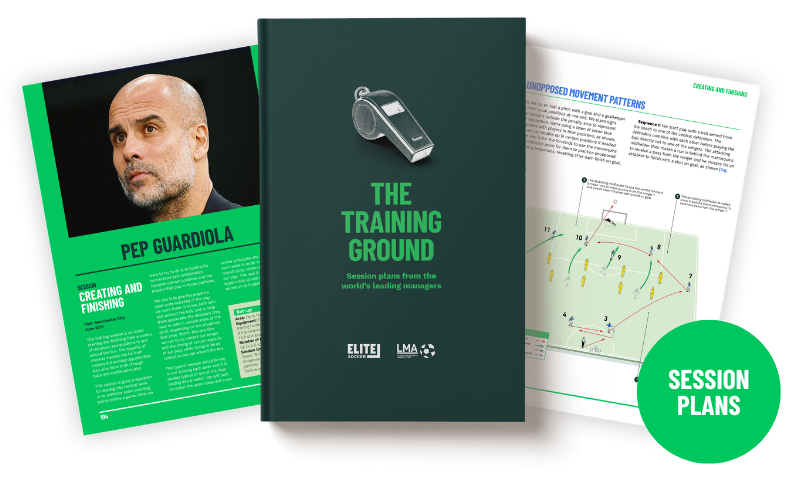
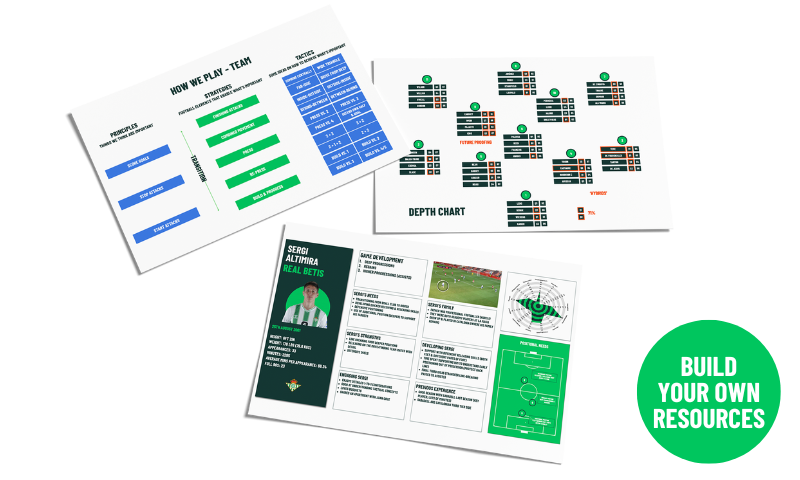

OUR BEST EVER OFFER - SAVE £100/$100
JOIN THE WORLD'S LEADING PROFESSIONAL DEVELOPMENT PROGRAMME
- 12 months membership of Elite Soccer
- Print copy of Elite Player & Coach Development
- Print copy of The Training Ground
You are viewing 1 of your 1 free articles
The Lion's share
Ahead of the 2017 UEFA European Women’s Championship, manager of the England Women’s team, Mark Sampson, talks about his journey through the world of soccer coaching.
Having sailed through their World Cup qualifiers shortly after Mark Sampson’s appointment as manager of the England Women’s team, the Lionesses returned from the World Cup finals in Canada in 2015 with a bronze medal, a new level of respect and an army of fans.
Given Sampson’s auspicious start as manager – his team also won the Cyprus Cup shortly before heading off to the World Cup finals – it’s little wonder that expectations around the 2017 European Championships are now high. Sampson, though, is confident that the incredible performances seen two years ago were just a glimpse of what’s to come.
“We’ve put a lot of hard work in over the last three or four years to build on the progress already made by the team,” he says. “Central to that has been giving the athletes as much information and support as possible so that they can be even more independent in their decision making.
“We’ve tried to involve the players as much as possible, because we want them to develop a strong sense of ownership, to be able to identify what the best thing is for the team at any given moment and then to take responsibility for those decisions. When you play like that you can be incredibly adaptable, and whatever your opponent throws your way, no matter what the context is and with whatever players you have available, you’ll come up with the answers.”
This willingness to engage and involve his players is now a key part of his leadership style, but it’s something that has developed with experience. Like many young coaches he was keen in his early career to make his mark and do things his own way.
“As I’ve got older and have had the chance to work with a much higher calibre of players, I’ve learnt how important it is to take a back seat sometimes to allow the players to contribute,” he says. He adds that he always wanted to be the kind of manager that nurtured a close family feel at his clubs, something he’s proud to have achieved not only with the national side, who have an incredible work ethic and togetherness, but also as manager of Taff’s Well and WPL side Bristol Academy.
NEW BEGINNINGS
When Sampson joined Bristol Academy in 2010 it was a relatively new club and he relished the opportunity to help shape its future. He also knew that the responsibility that came with the role of head coach would be invaluable experience. “During my first two years at Bristol Academy I made some poor decisions on and off the field, but it was such a powerful experience to have the buck stop at me and I knew it would be important for my development.”
The early period in a role is rarely easy, though, and Sampson’s was no exception. Bristol had just finished bottom of the old Women’s Premier League and were about to become one of the eight founder clubs of the new Women’s Super League. “We knew the standard would be higher, so the challenge was to attract players not just of the right calibre but also with the right characters,” says Sampson. “It was incredibly difficult to field a competitive team and in the first couple of years, as much as we enjoyed some success, we worked very hard on and off the field to shape the club in the way that we wanted.
“Change is always difficult, especially when your ideas and ways of working are quite different to those of your predecessor,” he adds. “Sometimes you have to take a few steps backwards before you can move forwards. When you’re coming into a role, especially as a young manager, the players may not know that much about you, so you’ve got to demonstrate your knowledge and competence and show them that you’re the right person to take the team forward.”
Sampson had to deal with his own fair share of change when he left women’s club football to become the England manager in December 2013. “The role of national manager requires a certain amount of patience, because you don’t always have access to the players when you need them,” he says. “We try to see this less as a challenge, though, and more as an opportunity, because when they don’t have to deliver day after day they can reach for a higher standard. We also use our breaks wisely so that we’re well prepared, and have created a training environment for the players that is both highly challenging and enjoyable. The camp should be somewhere people want to come back to.”
Another challenge unique to national team managers is ensuring that players remain connected to the team and its vision even when they are ‘off duty’. “Because we’re effectively borrowing players from the clubs, we need to ensure they still hold onto that sense of responsibility and purpose,” says Sampson. “It also means we have to be even more clear and concise with our messages, so that when the players return to the England camp they very quickly understand what we want from them and can make the switch from a club mindset to an international mindset.”
GROWING THE GAME
During Sampson’s time as England manager, the Women’s Super League has witnessed year-on-year growth in attendances and gone from being semi-professional to professional, which has also presented new challenges for Sampson and managers throughout the league.
“Players and managers in the WSL now face a much higher level of scrutiny than in the past and need to be more aware of how to deal with the media, in all its forms,” he says. “My staff and I have worked hard to put structures in place to support the players and to educate them about their responsibilities as footballers and as role models.”
Women’s football has also seen significant investment from FIFA and The FA, with more in the pipeline, and Sampson’s England side has benefited from the comprehensive state-of-the art facilities at St George’s Park.
“There’s not much more that an athlete could want and that’s important, because we want to create an environment where there are no excuses,” he says. “The players have everything they need to be the best they can be, so it’s down to each player to make the most of that. After all, you can have the best training ground in the world, but still not achieve success. Ultimately, it comes down to the mentality of each athlete and the team as a whole to push the boundaries where they haven’t before.”
While further investment would, of course, be welcome, Sampson isn’t hanging his hopes and plans on it, preferring to focus instead on thinking outside the box and on the side’s USP. “With the team, we picture what the perfect game would look like, and think about what keeps spectators interested in watching us play and what encourages young girls to take of its main drivers. We’re conscious of the fact that if we can win football matches and be competitive at major tournaments, the impact on women’s football could be enormous. The knock-on effect of winning a bronze medal at the 2015 World Cup, for example, was greater than could have been achieved by any investment, idea or initiative. We have the potential to change the shape of women’s football in this country over the next few years and we’re prepared to work very hard to achieve that.
“We want to be the best team in the world and we know that if we were to achieve that goal we’d see a whole new generation of young girls inspired to play the game,” says Sampson. “That would then hopefully see the women’s game move to the next level. It’s not often that a group of young people has the opportunity to achieve something like that, so we’ve got to embrace it and enjoy it.”
Editor's Picks
Attacking transitions
Deep runs in the final third
Using the goalkeeper in build-up play
Intensive boxes drill with goals
Penetrating the final third
Creating and finishing
My philosophy
Pressing initiation
Compact team movement
Coaches' Testimonials

Alan Pardew

Arsène Wenger

Brendan Rodgers

Carlos Carvalhal

José Mourinho

Jürgen Klopp

Pep Guardiola

Roy Hodgson

Sir Alex Ferguson

Steven Gerrard
Related
Coaches' Testimonials

Gerald Kearney, Downtown Las Vegas Soccer Club

Paul Butler, Florida, USA

Rick Shields, Springboro, USA

Tony Green, Pierrefonds Titans, Quebec, Canada
Join the world's leading coaches and managers and discover for yourself one of the best kept secrets in coaching. No other training tool on the planet is written or read by the calibre of names you’ll find in Elite Soccer.
In a recent survey 92% of subscribers said Elite Soccer makes them more confident, 89% said it makes them a more effective coach and 91% said it makes them more inspired.
Get Monthly Inspiration
All the latest techniques and approaches
Since 2010 Elite Soccer has given subscribers exclusive insight into the training ground practices of the world’s best coaches. Published in partnership with the League Managers Association we have unparalleled access to the leading lights in the English leagues, as well as a host of international managers.
Elite Soccer exclusively features sessions written by the coaches themselves. There are no observed sessions and no sessions “in the style of”, just first-hand advice delivered direct to you from the coach.
